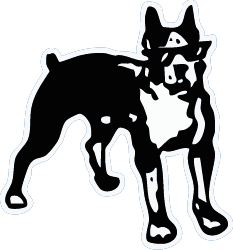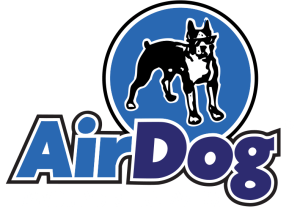

The performance of a heavy-duty truck depends on the quality of the diesel fuel delivered to its engine, and a critical component in ensuring fuel quality is the fuel filter. Optimal filtering performance comes from a high-quality fuel filter that matches the engine specifications and gets replaced as needed. Fuel filters have a limited lifespan, so it is essential to know when to replace your diesel fuel filter to obtain optimal performance from your engine and truck.
Recent years have brought changes in diesel fuel, diesel engines, and system components like fuel filters, so this blog post provides a guide to regular maintenance and the signs suggesting the need to change your fuel filter.
The fuel filter plays a crucial role in heavy-duty diesel engine performance by removing contaminants and ensuring high-quality diesel fuel reaches the engine. With today’s high-pressure fuel injection, it is more important than ever that the fuel filter minimizes the air, water, and other contaminants. Without effective filtering, these impurities damage the engine over time and degrade performance and efficiency. In addition, since replacing fuel filters is far less expensive than replacing damaged fuel injectors, it is common sense and intelligent business practice to monitor and replace your fuel filters as needed.
There are two primary methods to identify the need to replace your fuel filter. One approach is consistently checking the fuel filter as part of your regular maintenance practices. While consistent checking is necessary, it cannot prevent fuel filter problems resulting from contaminated fuel or other challenges. Since some fuel system challenges are difficult to anticipate, knowing the warning signs that you may need to replace your fuel filter is essential. So, here are a few warning signs of the need to replace your diesel fuel filter and reduce the potential for future engine problems.
A drop in fuel efficiency or performance is among the first indicators of a worn-out fuel filter. A clogged filter restricts fuel flow to the engine and affects the fuel system’s ability to deliver the proper fuel volume to the engine consistently. Insufficient fuel flow can cause the engine performance to suffer because the engine does not always inject fuel at optimal levels. As the engine strains for fuel, it may also receive more than optimal, reducing fuel efficiency. A drop in performance when accelerating or on a grade and a decrease in fuel efficiency that shows up at the pump suggests the need to check your fuel filter.
The inadequate fuel supply from a clogged fuel filter can cause the engine to sound like it is choking. At the same time, the increased strain on the fuel pump can create a buzzing sound as the pump tries to pull fuel through the obstructed filter.
Diesel engines require the most fuel when starting, and a clogged fuel filter can keep the engine from obtaining the fuel it needs to start. Likewise, a truck that shakes when idling or operating at low speeds indicates the engine is not receiving enough fuel, and the fuel filter is the likely culprit. The roughness when idling may also be more noticeable due to reduced road noise, vibrations, and other distractions that occur while operating the truck.
Regular maintenance is vital to keeping your diesel engine running smoothly. As a rule of thumb, you should check your fuel filter for signs of wear and tear every time you change the oil, but you should check more often when operating under severe conditions or using lower-quality fuel.
As they say, application matters, and the severity of your operating conditions will affect your fuel filter replacement interval. If you think about it, the amount of work a fuel filter performs is a function of the fuel consumed rather than the miles driven, with the result that the fuel filter on a concrete mixer should be checked at a lower mileage interval when compared to a highway truck because the cement mixer burns more fuel per mile.
Fuel quality also affects fuel filter life. Contaminated fuel requires fuel filters to block more particulates than when handling cleaner fuel, so filters start clogging and become less effective at lower miles. Likewise, you should check your fuel filter more often when trucks operate in winter conditions due to the impact of cold temperatures on diesel fuel.
Replacing your diesel fuel filter is a straightforward task you can perform with a few simple tools. Changing your air filter while the truck is in the shop is ideal. AirDog recommends carrying a spare set of filters to change the fuel filter (and water separator) whenever needed. Of course, any time a fuel filter is changed, the process should occur in a safe location, and the used filters should be disposed of properly. For a comprehensive guide to replacing your AirDog fuel filter, refer to How to Change Your AirDog Fuel Filters.
Like regular check-ups for your health, routine maintenance is crucial for most machines and systems, including your truck. Keeping your truck running and achieving its uptime target often comes down to taking care of the basics. Few aspects of properly maintaining your diesel engine’s optimal performance and fuel efficiency are more fundamental than replacing your fuel filter when needed. Achieving your targets is achievable by paying attention to the warning signs discussed earlier and following the recommended replacement intervals.


Heavy-duty diesel fuel systems from AirDog will help increase your mileage and injector life by removing water, vapor and contaminants. Made in the USA since 1990.
PUREFLOW™ TECHNOLOGIES, INC.
5508 Business 50 West
Jefferson City, MO 65109
© 2025. All rights reserved.
Site by Zimmer Communications